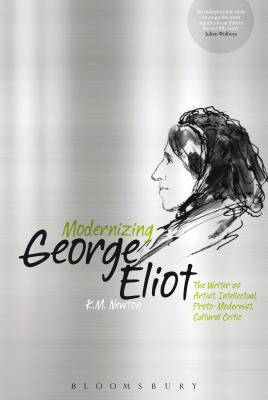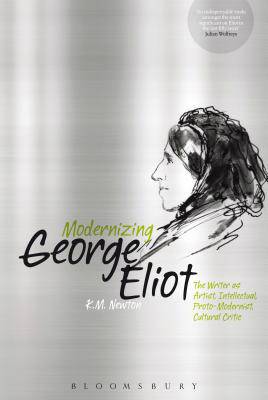
En raison d'une grêve chez bpost, votre commande pourrait être retardée. Vous avez besoin d’un livre rapidement ? Nos magasins vous accueillent à bras ouverts !
- Retrait gratuit dans votre magasin Club
- 7.000.000 titres dans notre catalogue
- Payer en toute sécurité
- Toujours un magasin près de chez vous
En raison de la grêve chez bpost, votre commande pourrait être retardée. Vous avez besoin d’un livre rapidement ? Nos magasins vous accueillent à bras ouverts !
- Retrait gratuit dans votre magasin Club
- 7.000.0000 titres dans notre catalogue
- Payer en toute sécurité
- Toujours un magasin près de chez vous
Modernizing George Eliot
The Writer as Artist, Intellectual, Proto-Modernist, Cultural Critic
K M Newton
Livre broché | Anglais
88,45 €
+ 176 points
Format
Description
George Eliot's work has been subject to a wide range of critical questioning, most of which relates her substantially to a Victorian context and intellectual framework. This book examines the ways in which her work anticipates significant aspects of writing in the twentieth and indeed twenty first century in regard to both art and philosophy.
This new book presents a series of linked essays exploring Eliot's credentials as a radical thinker. Opening with her relationship to the Romantic tradition, Newton goes on to discuss her reading of Darwinism, her radical critique of Victorian values and her affiliation with the modernists. The final essays discuss her work in relation to Derridean themes and to Bernard Williams' concept of moral luck. What emerges is a very different Eliot from the conservative figure portrayed in much critical literature.Spécifications
Parties prenantes
- Auteur(s) :
- Editeur:
Contenu
- Nombre de pages :
- 240
- Langue:
- Anglais
Caractéristiques
- EAN:
- 9781474275682
- Date de parution :
- 24-03-16
- Format:
- Livre broché
- Format numérique:
- Trade paperback (VS)
- Dimensions :
- 156 mm x 234 mm
- Poids :
- 340 g

Les avis
Nous publions uniquement les avis qui respectent les conditions requises. Consultez nos conditions pour les avis.






